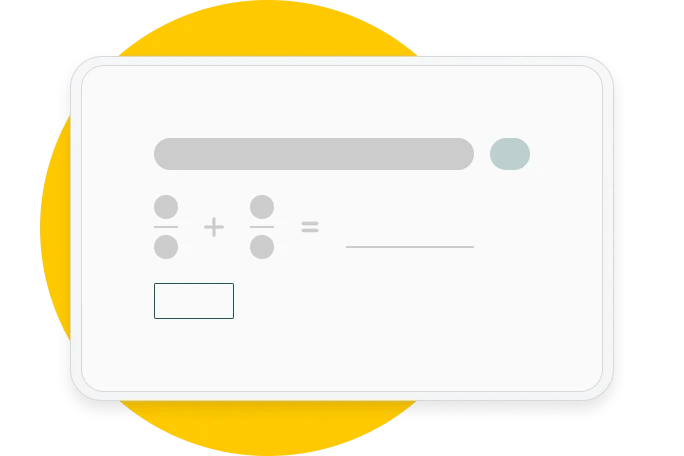2,182 students in Distinctive Schools campuses that use Prodigy
85% of Distinctive Schools students qualify for free and reduced lunch
19% of Distinctive Schools students are English Language Learners (ELLs)
“We really focus a lot of our efforts around filling the gaps for each child,” says Colleen Collins, Director at West Belden. “We recognize that kids are in different places as it relates to each concept.”
In early March 2020, members of Prodigy’s team visited Chicago to meet with teachers across four campuses from Distinctive Schools, the non-profit organization that manages West Belden.
They saw firsthand how teachers used Prodigy to meet math students' individual learning needs across a diverse student population, including both advanced and English Language Learners (ELLs).
Prodigy’s platform aligns with West Belden’s goal of providing adaptive learning to every student. “Students deserve to go deeper in places where they’re ready or perhaps revisit skills that are specific to them as areas of growth,” says Colleen. “That opportunity to move at their own pace is something that is really important to us.”


Prodigy offers 1,500+ math skills ranging from first- to third-level DOK. On the lower end, students practice fluency and knowledge of basic concepts and routine procedures. On the higher end, they interpret and understand what the question is asking.
Educators and parents can use Prodigy as they work to support learners' understanding of the underlying math principles to ensure students don’t just grasp new knowledge — but learn to apply it, too.

Mackenzie Beisser, a 6th grade special education teacher, sees how Prodigy can inspire more learning among students that aren’t usually engaged, even for older students.
“With my group of diverse learners – typically those that struggle with motivation and independent functioning — I see a high level of engagement,” she says. “With most other things there’s reluctance, and they definitely are more engaged with Prodigy.”
Plus, for her more diverse learners who require progress monitoring, Mackenzie says: “I’m able to use Prodigy data with that, which can be aligned to their IEP goals.”
After seeing how Prodigy’s audio feature reads out questions and hints, and how the question interface helped students visualize math problems, Jennifer Tenca was excited to see her 5th to 8th grade ELL students try it out.
“Getting them excited and actually using the language, talking together and playing together has been a huge success.”
Prodigy’s assessment tools also let Jennifer know what her students are learning.
“Really breaking down the questions for [ELLs] is helpful. I’m going through and seeing what questions they're getting, how the question is written and why they’re getting it wrong.” says Jennifer.


Because of the adaptive algorithm hard at work while students play, Prodigy makes it easier to keep students moving forward in their learning — without extra work from teachers.
For advanced students, opportunities to level up learning keep them engaged. “If these kids don’t get enrichment, they get really bored,” says Christy.
“Some of our kids are already a little bit further. Sometimes teachers have to work really hard to find other things for them, where Prodigy was very adaptive and kept them moving in that direction. Those kinds of learners love to learn and love to be challenged,” she says.


Prodigy slotted easily into West Belden’s data-driven culture, where big-picture and individual analysis happens regularly.
“We do a good job when we’re able to take our assessment data and really dissect it,” says Christy. “Prodigy did this organically for us, and that was super important for our kids because we didn’t have any great data.”
Colleen notes that during West Belden’s regular data and design meetings, multiple data points inform their planning. “Prodigy is part of that conversation now, and we have an additional set of data that lets us understand even more about our students,” she says.
At the classroom level, Prodigy data is useful for making day-to-day decisions about teaching.
Mary, Jennifer and Mackenzie share a lot of students, so they look at Prodigy data for planning together. “We work so collaboratively that the ease of being able to discuss data as a group has been really helpful,” says Mackenzie.
“I look at the types of questions that are there and their different standards or skills,” says Mary Pehar, a 6th grade math and science teacher. “And then I’ll say, ‘Okay, we’re covering these two or three skills. Let me assign five questions for each of those, so that I have maybe a week’s worth.”
“It gives me a good, quick snapshot of where they’re at and then I know which kids to target or which ones are falling behind.”


"I have been able to see excitement from my teachers and our students with the opportunity to use Prodigy. It’s given us an extra thing to celebrate while our students have been remote for a year. It’s been another way to connect with them and say, ‘We see you working at home, we see you learning and we are here to celebrate you.’"

"It’s been very helpful to have Prodigy as a resource. I know that if they’re working on Prodigy, then they’re working on something that I need them to be practicing. It’s motivating because I know it’s engaging and it takes a little bit less lift for me. It definitely impacted my motivation."

"When I see students, there are two different learners. There are ones that are excited about math, they love it. And then the other side that dreads it. Prodigy is something that once they play it and they can have fun with it and they can learn from it, it boosts their confidence and puts them in a different mindset."